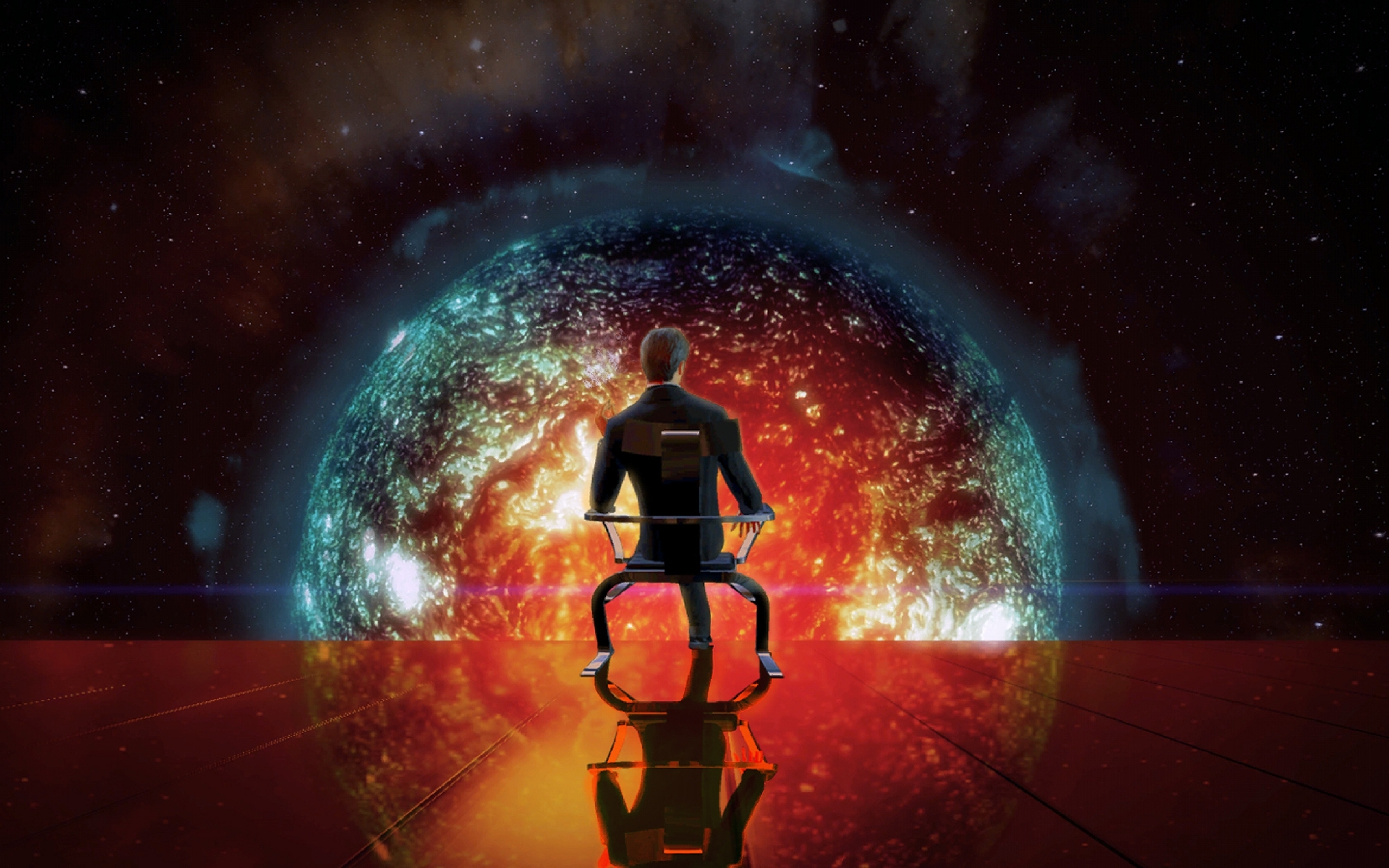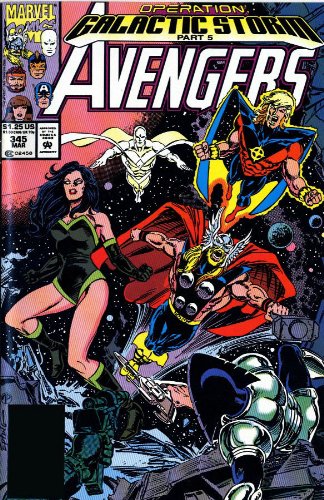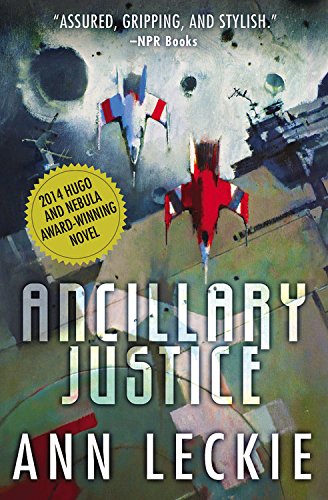If you like Mass Effect you’ll also like…
...these movies, books, comics, and art that share the series' cosmic setting as well as its personal moments.

Every time I step onto the Normandy’s bridge I am reminded that space isn’t just a vacuum, it’s a stage for galactic drama. The Mass Effect series combines the best elements of classic space opera adventure with an RPG structure that encourages both playful and serious challenges to traditional science fiction. I get the cool ship, but it’s up to me to do something meaningful with it. That’s a big part of what makes Mass Effect one of the grandest—and most personal—sci-fi epics in any medium.
Over the course of the original trilogy Mass Effect builds on its ambitious beginning to embrace a wide cast of characters who pull you into their lives and grab your attention. Of course genre monuments like the original Star Wars are also brilliant at this, but what Mass Effect does so well is to take a passive viewer and drop him or her right into the left seat of the Millennium Falcon. As Shepard, I’m at the controls.
But the games also work as a heady meditation on politics, culture, and the nature of humanity’s (possible) position in the universe. It’s likely outer space is—and will be—a realm that’s at best deeply ambivalent to our presence and at worst, actively hostile. If and when we ever reach the stars, we’ll be one of the smallest fish in the biggest pond there is. If we’re lucky.
With that in mind, for the latest entry in the ‘If you like’ series, I’ve picked out some art, films, and books that accept these cosmic challenges but also speak to the more personal moments that Mass Effect stages so well.
Art of John Harris: Beyond the Horizon, directed by Alex Freidin-Goss
I first encountered John Harris’ work on the cover of a book many of you are probably familiar with, the 1985 novel Ender’s Game. In that piece, we see an elegant and dangerous-looking starfighter streaking toward a distant horizon broken by a mysterious red planet. Like so much of his work in science fiction art, Harris’ Ender’s Game illustration suggests an incredibly vast universe that human beings nevertheless feel driven to explore, understand, and even conquer. And like Mass Effect, the scale of it all never seems to push away or destroy the importance of the individual. Someone’s piloting all those ships, after all.
I’ve included the short documentary above not only because it provides a wonderfully choreographed tour of some Harris’ best work, but also because of the insight he shares. In it he speaks eloquently about his creative process and the way the attempt to imagine outer space affects how we see both ourselves and the wider world. The film is one of the best arguments for the power and purpose of science fiction that I’ve ever come across.
It’s worth finding a quiet moment to enjoy, preferably in full-screen.
Keep up to date with the most important stories and the best deals, as picked by the PC Gamer team.
Marvel’s Operation Galactic Storm crossover series

The Avengers—and Marvel—are a big deal these days. And they deserve to be. Part of the reason for that is the great run various Marvel series went on during the early 1990s. This was an epic time to be reading Marvel if you were a fan of the superheroes-in-space schtick that so many comics seem to explore from time to time. Because of the film adaptations, we all got to know the Infinity Gauntlet storyline a bit better, but there’s another crossover series from that period that’s just as ambitious but maybe less well-known—Operation Galactic Storm.
The 19-part series deals with a conflict that flares up between two well-known space empires in the Marvel universe, the Kree and Shi'ar. As in the Mass Effect series, humans are just one culture among countless others in the cosmos. The Kree and Shi'ar barely notice when their war threatens the stability of Earth’s solar system. Naturally the Avengers decide something has to be done, cosmic odds be damned, and the story takes off from there. With strange and deadly aliens, a doomsday device, and even a suicide mission, there’s a lot that Mass Effect fans will find appealing.
You can catch all the main parts of the story in two crossover collections.
Europa Report, directed by Sebastián Cordero
The easiest movie comparisons to make with the epic, swashbuckling scope of Mass Effect are the ones we all know about—the best of the Star Wars and Star Trek films. Of course television, with its multi-season format, also works as a good analogy to the dozens of hours you can invest in the Mass Effect storyline. You can take your pick among popular favorites like Battlestar Galactica, Firefly, or Babylon 5.
But there’s another category of space film that’s seen a resurgence lately that also pairs nicely with the personal tone of something like Mass Effect. It’s a style that attempts a narrower, more modest view of space exploration that traces its origins to Stanley Kubrick’s 2001: A Space odyssey far more than it does to something like Star Wars. I’ve included a trailer above for a recent example of this type of film in Europa Report. Other films that take this approach include the excellent Moon directed by Duncan Jones as well as Christopher Nolan’s divisive Interstellar.
As its title suggest, Europa Report depicts a journey to the icy Jupiter moon in search of possible signs of life. Even as the film’s hard-science fiction approach highlights the impressive technology needed for such a mission, it doesn’t lose sight of the cost to its crew. Films like Europa Report aren’t grand in the exact same way as Mass Effect, but they demonstrate the human dimension of space flight in a way that gets at some of the best moments from the series.
Space operas in the 21st century

Although it’s one of the oldest types of science fiction literature, space opera remains one of the most active and popular categories of sci-fi writing today. It’s really the DNA behind most of what works so well in Mass Effect. But as we see in the introduction to a massive recent anthology dedicated to the concept— The Space Opera Renaissance—it can be tough to pin down an exact definition. It’s enough for me to say that space opera stories are set primarily or totally in outer space and always have a rich sense of drama that engages readers on both a galactic and personal level. Sounds like Mass Effect to me.
There are countless examples to pick from, but I’ve chosen two authors who both have a supremely confident interpretation of the subgenre. One is Ann Leckie’s Hugo and Nebula Award-winning Ancillary Justice. The novel—part one of a trilogy—deals with issues of gender, artificial intelligence, and imperial war and is written in a style that demands a good amount of self-reflection on the part of the reader, even as the story takes you on a ride.
Another space opera worth checking out is David Drake’s RCN series. I’ve always enjoyed the exacting and authentic approach to military culture that his writing invariably includes, and the RCN novels don’t disappoint. Inspired by Patrick O’Brian’s Aubrey/Maturin naval books, Drake gives us a similar pair of unlikely companions for his take on the space opera. You can jump into any of Drake’s entries in the series and find a rich tapestry of characters and events, but the first book—With the Lightnings—is a great place to start.
For more installments of ‘If you like...’, check out Patrick’s recommendations for Skyrim, Fallout 3, and Deus Ex fans.

